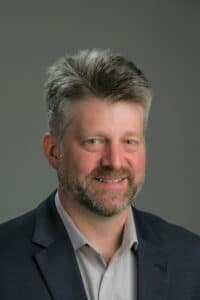
12 Sep Fall HR Conference Season – A Source of Optimism
It’s finally September, and the fall HR conference season is here along with a new sense of normal – however, you may define it. As I prepare for the travel, the content and the connections that come with conference season, there’s a sense of hopefulness emerging for things to come in the world of people, organizations and technology. We’ve been through a lot in the past few years: disruption, uncertainty, fear, isolation, fatigue, resignations, resilience, gratitude and now, optimism.
Yes, optimism. Hear me out.
The great tradition of human perseverance
The struggles of professional life remain, and perhaps they are as pronounced as ever. While we may have grown tired of the words that describe our circumstances, we are still moving through digital transformation and living in the aftermath of a very disruptive pandemic. Changes to the way we work and live will keep coming. The “integration” of work and life still challenges even the most organized of people, and each of us needs to be intentional about where we focus our attention and how we spend our time.
There are reasons to be optimistic.
According to many great human traditions, going through hardship often prepares us for better things. Basic training in the military fosters the discipline and focus for specialization and vigilance in a career protecting our homelands. Two-a-day practices in sports build the conditioning and endurance required for running sophisticated plays that can lead to victory on the field or on the court. And striking the keys of a piano until you push past achy fingers lets you reach new levels of musical precision and creativity.
The analogies are endless. They can help us relate to the mental and physical exhaustion we’ve been through during the past couple of years and help us recognize the renewed capabilities we have as professionals who focus on people, work and technology. Concepts like agile HR, human-centric organizations, a more balanced approach to the labor contract, analytics plus the paradigm of learning in the flow of work and workforce ecosystems that may have seemed like buzzwords or platitudes are now accessible. They are becoming a reality in part by being forced to change.
Bringing Workforce Visions into reality
We’ve been through a lot, we’ve seen a lot of change and we have a lot to be proud of. We are stronger, more capable and more ready for disruption than we have been in generations. What we have is a bright future knowing that we can handle the unexpected.
I, for one, am excited to see the growth and strength of my industry firsthand through the in-person connections, the knowledge exchange, the intense ideation, and the loads of fun that come with industry conferences. The juxtaposition and overlap of HR Technology Conference and the Contingent Workforce Summit have me most excited about the possibility of breaking down the barriers between FTE and non-employee workforces. This will help create unified workforce strategies that cultivate, include and accommodate all workforce segments for an unprecedented level of flexibility, productivity and satisfaction by workers and employers alike.
This vision for a unified workforce strategy is not new. Almost a decade ago, the idea of total talent management captured the imagination of the staffing world and served as a rallying cry for change. Unfortunately, silos within organizations and industries, along with process inertia and risk aversion kept this vision from becoming a reality.
Now, we are in a time of proactive risk management, scenario planning, agile organizations and fluid markets that increase the demand for a more holistic, flexible workforce strategy. Perhaps most importantly, we have technology with the agility and precision to bring down silos and experiment with new ways of working. We also have emerging mindsets that seek change for the better than try to avoid it. We have renewed calls for a universal workforce model and the capabilities, tools and will to make it happen.
What is your vision for the future of work?
I’m grateful to be a part of this industry, serving as an agent of change-making work and life better for everyone. I’m also energized by all the smart, caring people around me who are working to make it all happen.

Jeff Mike
Head of Research, Flextrack
Jeff Mike works closely with HR, Procurement and IT leaders to design extended workforce ecosystems that fuel and future-proof enterprise talent strategies. Jeff brings over 15 years of experience leading HR functions, along with five years leading global HR- and workforce-related research, to combine the best thought leadership, business practices, and platform technology into purpose-built solutions.
